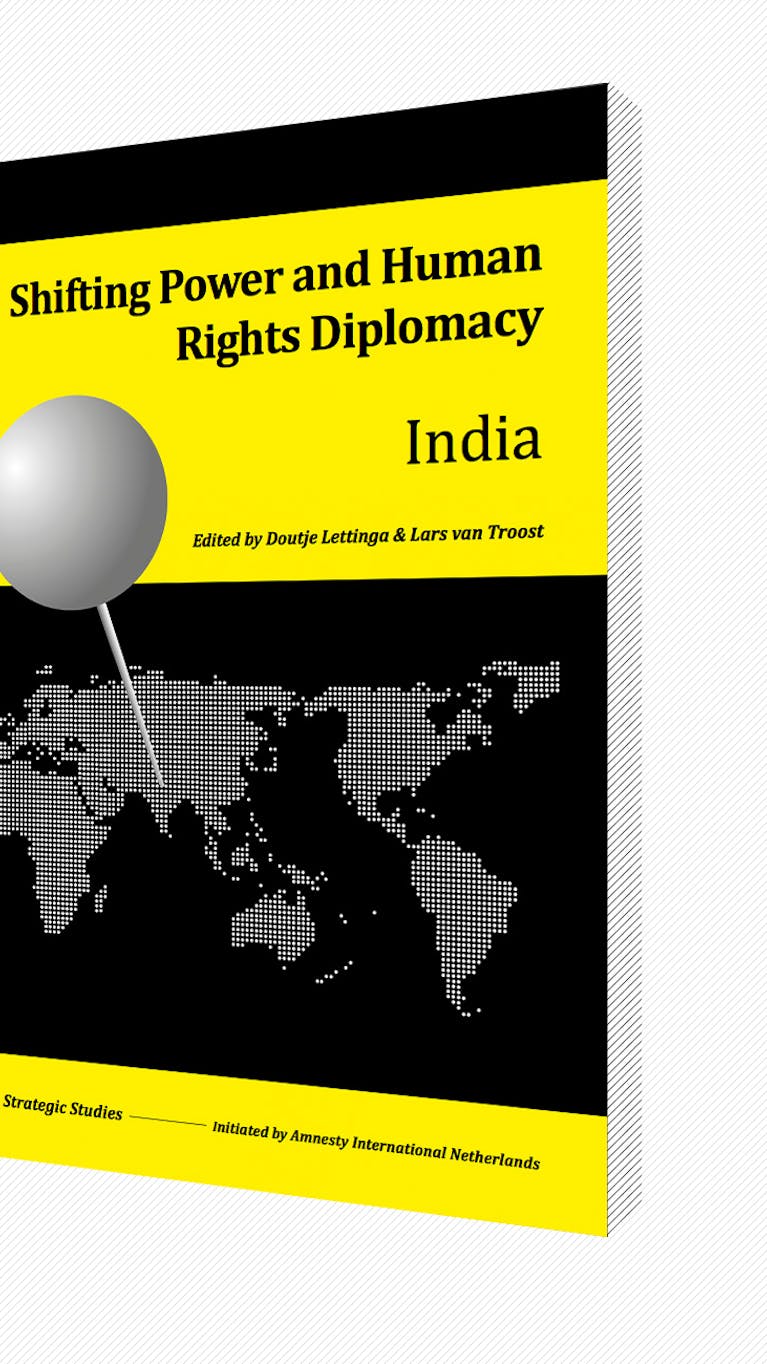
Shifting Power and Human Rights Diplomacy
The Shifting Power and Human Rights Diplomacy series focuses on rising powers and their current and potential roles in the international protection and promotion of human rights. It contains volumes with original essays on the human rights foreign policy of rising global and regional powers, which are distributed to key strategic leaders in ministries, think tanks, universities and NGO’s working on human rights, democracy and rule of law.
China (February 2020)
The sixth essay volume in the Shifting Power and Human Rights Diplomacy series contains a collection of twelve essay on the human rights policy of the People’s Republic of China. The authors trace the Chinese visions and narratives that are (re)shaping international norms and standards relating to human rights, discuss the various ways in which China expands its global influence and promotes its views, and give recommendations to various stakeholders on how to uphold and strengthen the human rights system. The volume contains contributions from, among others, Sarah M. Brooks (International Service for Human Rights), Pitman B. Potter (Peter A. Allard School of Law), Cédric Alviani (Reporters Without Borders), Eva Pils (King’s College London) and Joshua Rosenzweig (Amnesty International).
Russia (March 2017)
In our fifth essay volume fourteen authors from Russian, European and the United States academia, think tanks and NGO’s write about Russia’s relation with the European Union, religion and human rights in Russian foreign policy and framing and identity in Russian politics. Among the contributors to this volume are Rick Fawn (St Andrews University), Alexander Cooley and Matthew Schaaf (Columbia University and Freedom House Ukraine), Bill Bowring (London University) and Anna Neistat (Amnesty International).
Germany (October 2016)
The Fourth essay volume in the Shifting Power and Human Rights Diplomacy series contains essays from ten authors from Germany who write about Germany’s relations with other EU member states and rising powers like China and India. Also they focus on the impact on the country’s external human rights policies. Among the contributors to this volume are Ulrike Guérot (author off Warum Europa eine Republik werden muss! Eine politische Utopie), Katrin Kinzelbach (Global Public Policy Institute), Michael Krennerich (Friedrich Alexander University), Andrea Berg and Alexia Knappmann (both working at Amnesty Germany).
Rising power South Africa (March 2016)
The third volume in the Shifting Power and Human Rights Diplomacy series contains a collection of eleven essays on South Africa’s foreign human rights policy. Fifteen authors from South Africa, Asia and the United States write about a variety of topics, including South African geopolitics, internet governance and South Africa’s foreign policy and the Responsibility to Protect from a South African perspective. The volume contains contributions from, among others, Jeremy Sarkin (University of South Africa), Audie Klotz (Syracuse University) and Dan Kuwali (University of Pretoria).
Rising power India (April 2015)
The second volume in the Shifting Power and Human Rights Diplomacy series contains a collection of essays on India’s foreign human rights policy. Thirteen authors from India, Europe and the United States write about a variety of topics, including Indian geopolitics, internet governance and India’s foreign policy and the Responsibility to Protect from an Indian perspective. The volume contains contributions from, among others, C. Raja Mohan (Carnegie Endowment for International Peace), Rohan Mukherjee (Princeton University) and Meenakshi Ganguly (Human Rights Watch).
Rising power Brazil and human rights diplomacy (November 2014)
The first volume in this new series focuses on Brazil and contains nine essays published by Strategic Studies, an initiative of Amnesty International Netherlands. Experts on Brazilian foreign policy critically reflect on the opportunities and threats that this rising power may present to the global human rights regime.
This volume is edited by Thijs van Lindert and Lars van Troost (Strategic Studies, Amnesty International Netherlands). Contributors: Par Engstrom, Oliver Stuenkel, Maria Laura Canineu, Eileen Donahoe, Paulo de Tarso Lugon Arantes, Susanne Gratius, Fernando Brancoli, Diana Thomaz, Maurício Santoro, Fiona Macaulay, Lucia Nader and Laura Trajber Waisbich.